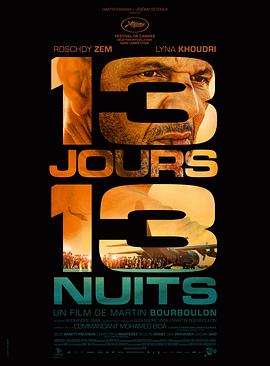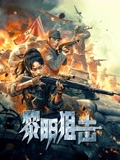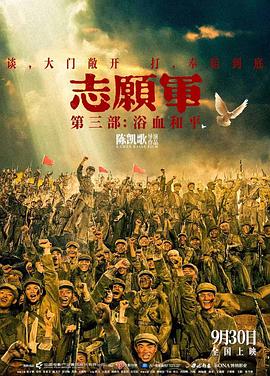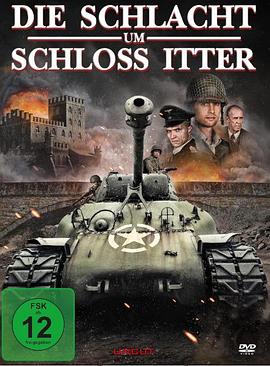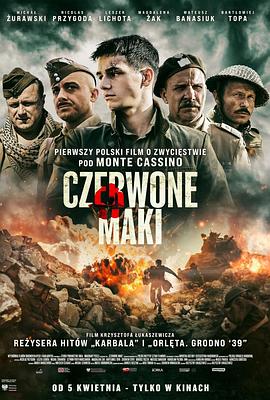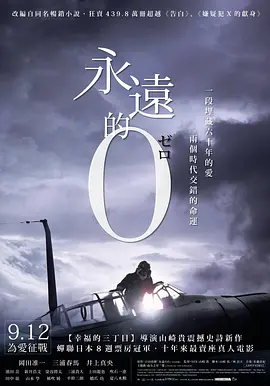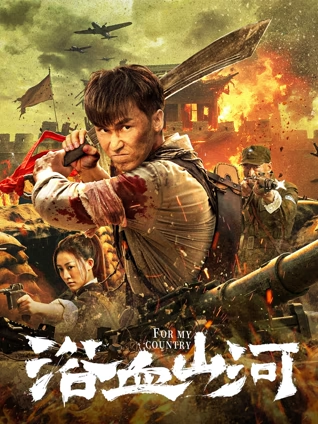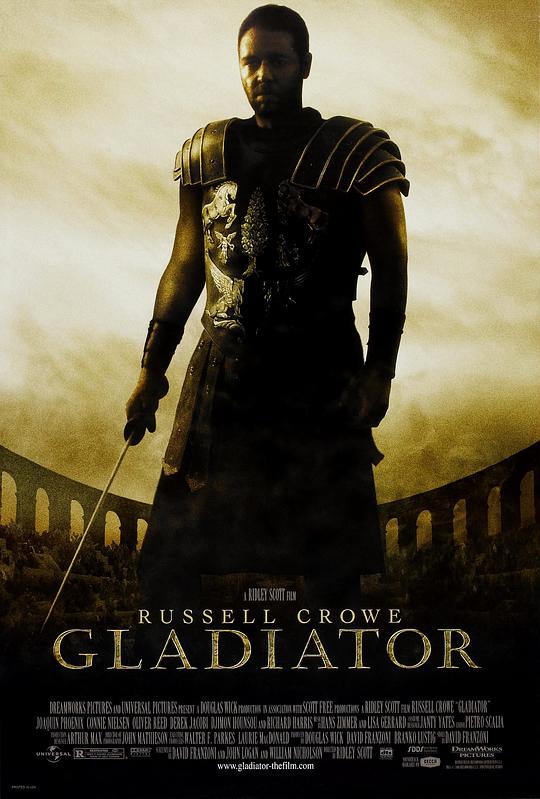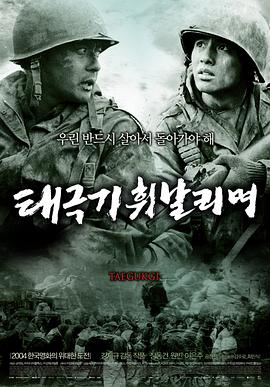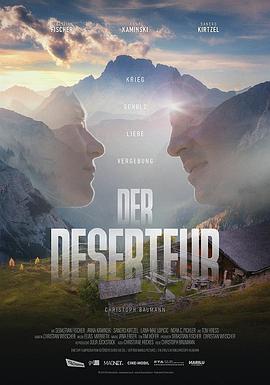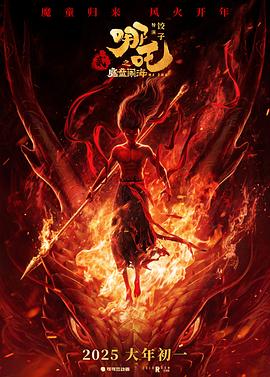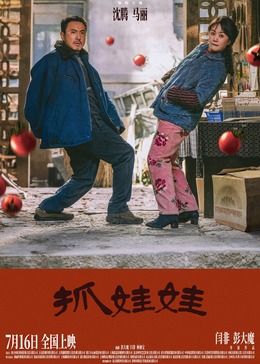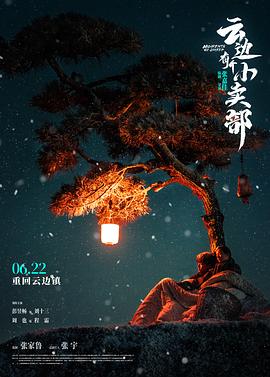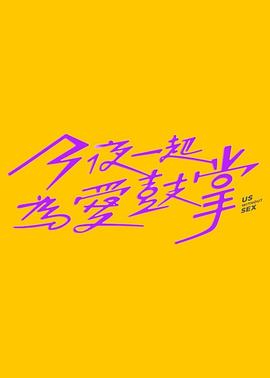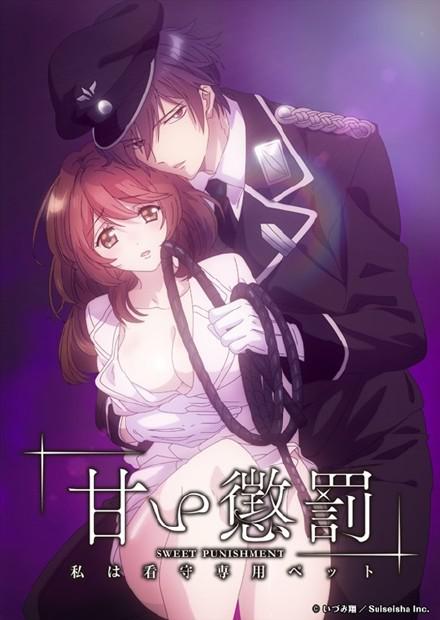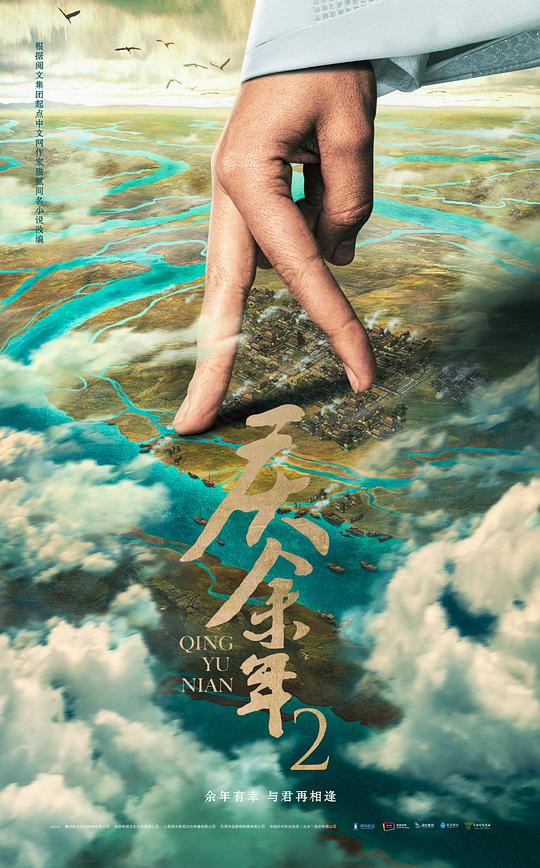
导演:
上映:
未知
更新:
2024-03-28 03:12:21,最后更新于1年前
备注:
HD
评分:
0.0分
TAG:
未知
剧情:
In 1961, Stanislaw Rozewicz created the novella film "Birth Certificate" in cooperation with his brother, Taduesz Rozewicz as screenwriter. Such brother tandems are rare in the history of film but aside from family ties, Stanislaw (born in 1924) and Taduesz (born in 1921) were mutually bound by their love for the cinema. They were born and grew up in Radomsk, a small town which had "its madmen and its saints" and most importanly, the "Kinema" cinema, as Stanislaw recalls: for him cinema is "heaven, the whole world, enchantment". Tadeusz says he considers cinema both a charming market stall and a mysterious temple. "All this savage land has always attracted and fascinated me," he says. "I am devoured by cinema and I devour cinema; I'm a cinema eater." But Taduesz Rozewicz, an eminent writer, admits this unique form of cooperation was a problem to him: "It is the presence of the other person not only in the process of writing, but at its very core, which is inserperable for me from absolute solitude." Some scenes the brothers wrote together; others were created by the writer himself, following discussions with the director. But from the perspective of time, it is "Birth Certificate", rather than "Echo" or "The Wicked Gate", that Taduesz describes as his most intimate film. This is understandable. The tradgey from September 1939 in Poland was for the Rozewicz brothers their personal "birth certificate". When working on the film, the director said "This time it is all about shaking off, getting rid of the psychological burden which the war was for all of us. ... Cooperation with my brother was in this case easier, as we share many war memories. We wanted to show to adult viewers a picture of war as seen by a child. ... In reality, it is the adults who created the real world of massacres. Children beheld the horrors coming back to life, exhumed from underneath the ground, overwhelming the earth." The principle of composition of "Birth Certificate" is not obvious. When watching a novella film, we tend to think in terms of traditional theatre. We expect that a miniature story will finish with a sharp point; the three film novellas in Rozewicz's work lack this feature. We do not know what will be happen to the boy making his alone through the forest towards the end of "On the Road". We do not know whether in "Letter from the Camp", the help offered by the small heroes to a Soviet prisoner will rescue him from the unknown fate of his compatriots. The fate of the Jewish girl from "Drop of Blood" is also unclear. Will she keep her new impersonation as "Marysia Malinowska"? Or will the Nazis make her into a representative of the "Nordic race"? Those questions were asked by the director for a reason. He preceived war as chaos and perdition, and not as linear history that could be reflected in a plot. Although "Birth Certificate" is saturated with moral content, it does not aim to be a morality play. But with the immense pressure of reality, no varient of fate should be excluded. This approached can be compared wth Krzysztof Kieslowski's "Blind Chance" 25 years later, which pictured dramatic choices of a different era. The film novella "On the Road" has a very sparing plot, but it drew special attention of the reviewers. The ominating overtone of the war films created by the Polish Film School at that time should be kept in mind. Mainly owing to Wajda, those films dealt with romantic heritage. They were permeated with pathos, bitterness, and irony. Rozewicz is an extraordinary artist. When narrating a story about a boy lost in a war zone, carrying some documents from the regiment office as if they were a treasure, the narrator in "On the Road" discovers rough prose where one should find poetry. And suddenly, the irrational touches this rather tame world. The boy, who until that moment resembled a Polish version of the Good Soldier Schweik, sets off, like Don Quixote, for his first and last battle. A critic described it as "an absurd gesture and someone else could surely use it to criticise the Polish style of dying. ... But the Rozewicz brothers do no accuse: they only compose an elegy for the picturesque peasant-soldier, probably the most important veteran of the Polish war of 1939-1945." "Birth Certificate" is not a lofty statement about national imponderabilia. The film reveals a plebeian perspective which Aleksander Jackieqicz once contrasted with those "lyrical lamentations" inherent in the Kordian tradition. However, a historical overview of Rozewicz's work shows that the distinctive style does not signify a fundamental difference in illustrating the Polish September. Just as the memorable scene from Wajda's "Lotna" was in fact an expression of desperation and distress, the same emotions permeate the final scene of "Birth Certificate". These are not ideological concepts, though once described as such and fervently debated, but rather psychological creations. In this specific case, observes Witold Zalewski, it is not about manifesting knightly pride, but about a gesture of a simple man who does not agree to be enslaved. The novella "Drop of Blood" is, with Aleksander Ford's "Border Street", one of the first narrations of the fate of the Polish Jews during the Nazi occupation. The story about a girl literally looking for her place on earth has a dramatic dimension. Especially in the age of today's journalistic disputes, often manipulative, lacking in empathy and imbued with bad will, Rozewicz's story from the past shocks with its authenticity. The small herione of the story is the only one who survives a German raid on her family home. Physical survial does not, however, mean a return to normality. Her frightened departure from the rubbish dump that was her hideout lead her to a ruined apartment. Her walk around it is painful because still fresh signs of life are mixed with evidence of annihilation. Help is needed, but Mirka does not know anyone in the outside world. Her subsequent attempts express the state of the fugitive's spirits - from hope and faith, moving to doubt, a sense of oppression, and thickening fear, and finally to despair. At the same time, the Jewish girl's search for refuge resembles the state of Polish society. The appearance of Mirka results in confusion, and later, trouble. This was already signalled by Rozewicz in an exceptional scene from "Letter from the Camp" in which the boy's neighbour, seeing a fugitive Russian soldier, retreats immediately, admitting that "Now, people worry only about themselves." Such embarassing excuses mask fear. During the occupation, no one feels safe. Neither social status not the aegis of a charity organisation protects against repression. We see the potential guardians of Mirka passing her back and forth among themselves. These are friendly hands but they cannot offer strong support. The story takes place on that thin line between solidarity and heroism. Solidarity arises spontaneously, but only some are capable of heroism. Help for the girl does not always result from compassion; sometimes it is based on past relations and personal ties (a neighbour of the doctor takes in the fugitive for a few days because of past friendship). Rozewicz portrays all of this in a subtle way; even the smallest gesture has significance. Take, for example, the conversation with a stranger on the train: short, as if jotted down on the margin, but so full of tension. And earlier, a peculiar examination of Polishness: the "Holy Father" prayer forced on Mirka by the village boys to check that she is not a Jew. Would not rising to the challenge mean a death sentance? Viewed after many years, "Birth Certificate" discloses yet another quality that is not present in the works of the Polish School, but is prominent in later B-class war films. This is the picture of everyday life during the war and occupation outlined in the three novellas. It harmonises with the logic of speaking about "life after life". Small heroes of Rozewicz suddenly enter the reality of war, with no experience or scale with which to compare it. For them, the present is a natural extension of and at the same time a complete negation of the past. Consider the sleey small-town marketplace, through which armoured columns will shortly pass. Or meet the German motorcyclists, who look like aliens from outer space - a picture taken from an autopsy because this is how Stanislaw and Taduesz perceived the first Germans they ever met. Note the blurred silhouettes of people against a white wall who are being shot - at first they are shocking, but soon they will probably become a part of the grim landscape. In the city centre stands a prisoner camp on a sodden bog ("People perish likes flies; the bodies are transported during the night"); in the street the childern are running after a coal wagon to collect some precious pieces of fuel. There's a bustle around some food (a boy reproaches his younger brother's actions by singing: "The warrant officer's son is begging in front of the church? I'm going to tell mother!"); and the kitchen, which one evening becomes the proscenium of a real drama. And there are the symbols: a bar of chocolate forced upon a boy by a Wehrmacht soldier ("On the Road"); a pair of shoes belonging to Zbyszek's father which the boy spontaneously gives to a Russian fugitive; a priceless slice of bread, ground under the heel of a policeman in the guter ("Letters from the Camp"). As the director put it: "In every film, I communicate my own vision of the world and of the people. Only then the style follows, the defined way of experiencing things." In Birth Certificate, he adds, his approach was driven by the subject: "I attempted to create not only the texture of the document but also to add some poetic element. I know it is risky but as for the merger of documentation and poety, often hidden very deep, if only it manages to make its way onto the screen, it results in what can referred to as 'art'." After 1945, there were numerous films created in Europe that dealt with war and children, including "Somewhere in Europe" ("Valahol Europaban", 1947 by Geza Radvanyi), "Shoeshine" ("Sciescia", 1946 by Vittorio de Sica), and "Childhood of Ivan" ("Iwanowo dietstwo" by Andriej Tarkowski). Yet there were fewer than one would expect. Pursuing a subject so imbued with sentimentalism requires stylistic disipline and a special ability to manage child actors. The author of "Birth Certificate" mastered both - and it was not by chance. Stanislaw Rozewicz was always the beneficent spirit of the film milieu; he could unite people around a common goal. He emanated peace and sensitivity, which flowed to his co-workers and pupils. A film, being a group work, necessitates some form of empathy - tuning in with others. In a biographical documentary about Stanislaw Rozewicz entitled "Walking, Meeting" (1999 by Antoni Krauze), there is a beautiful scene when the director, after a few decades, meets Beata Barszczewska, who plays Mireczka in the novella "Drops of Blood". The woman falls into the arms of the elderly man. They are both moved. He wonders how many years have passed. She answers: "A few years. Not too many." And Rozewicz, with his characteristic smile says: "It is true. We spent this entire time together."收起
AD:
相关影片
2025战争片法国
罗什迪·泽姆 琳娜·库德里 西瑟·巴比特·科努德森 克里斯托弗·蒙特内兹 伊安·蒂阿尔 法蒂玛·埃多姆 Shoaib Sad Sayed Hashimi 本杰明·希克戈尔 西纳·帕瓦内赫 Luigi Krner 尼可拉斯·布里代 雅典娜·史催特 Einar Haraldsson 埃文特·斯特朗 Khan Burhan Omar Danaya Jean-Claude Muaka
在塔利班接管喀布尔期间,阿富汗军队守卫着法国大使馆。他们肩负着在混乱中疏散500人至机场的任务,在试图绝望逃离这座正在沦陷的城市时,面临着巨大的风险。
HD
2015战争片美国
HD
2025战争片中国大陆
HD国语
2025战争片大陆
TC国语
2025战争片美国
It’s 1945 and Hitler is dead. The remaining Nazi leadership is expected to surrender any day but n
HD中字
2014战争片欧美
HD
2013战争片日本
2004年的一天,司法浪人佐伯健太郎(三浦春马 饰)在外婆的葬礼上得知,他和外公贤一郎(夏八木勋 饰)没有任何血缘关系,其真正的外公宫部久藏(冈田准一 饰)早已在二战末期死于神风特攻行动中。此后不久,健太郎被姐姐庆子(吹石一惠 饰)叫上去调查宫部的事迹,他们走访了宫部当年的战友,谁知许多人都将外公斥为“帝国海军第一懦夫”,其执行任务时即使看着战友牺牲也绝不卷入战局。老兵们的评价让姐弟俩颇受打击,但随着调查的深入,他们发现宫部拥有最高超的飞行技巧,他深爱着妻子(井上真央 饰)及女儿,并发誓无论如何要回到家人
HD
2025战争片中国大陆
HD国语
2017战争片中国大陆
正片
2022战争片德国 奥地利
马克西米利安·莱因瓦尔德 卡罗拉·玛丽亚·尼德胡伯 克里斯蒂安·荣胡伯 卡尔·马克维斯 吉安娜·弗兰茨迈尔 马克西米利安·施密德 薇薇安·盖尔 朱莉亚·欧伯施耐德 塞琳娜·基尔津格 劳林·穆勒 马蒂亚斯·劳特 科内利乌斯·奥博尼亚 西蒙·莫尔泽 亚历山大·林哈特 斯蒂凡·伊布纳 汤姆·斯蒂维奇 马克西米利安·扎农 马尔科·凯勒佐维奇 马克西米利安·埃施汀格 约瑟夫·斯托西
在战争开始时,内向的年轻士兵弗兰兹发现了一只受伤的狐狸幼崽,小狐狸在树林中孤苦无依的样子,让他仿佛看见了从小被父亲卖去农场主家的自己。他像照顾自己的孩子一样照顾它,并带到了被占领的法国。在养育狐狸的过程中,弗兰兹一直逃避的过去慢慢追上了他,是选择继续逃避这些伤心的回忆,还是直面它,弗兰兹陷入了深深的纠结。
HD
2000战争片欧美
罗素·克劳 华金·菲尼克斯 康妮·尼尔森 奥列佛·里德 理查德·哈里斯 德里克·雅各比 杰曼·翰苏 大卫·斯科菲尔德 约翰·斯拉普内尔 托马斯·阿拉纳 拉尔夫·莫勒 斯宾塞·崔特·克拉克 戴维·海明斯 汤米·弗拉纳根 史文-欧尔·托尔森 欧米德·吉亚李利 Chris Kell 托尼·库兰 大卫·拜利 艾尔·阿什顿 雷·卡雷贾 詹妮娜·法西奥 乔治·坎塔里尼 阿兰·柯德勒 迈克尔·梅林杰 亚当·利维 吉力·吉尔克里斯特 Kjeld Gogosha-Clark 尼克·梅因 若昂·科斯塔·梅内塞斯 迈克·米切尔
马克西·蒙斯(罗素·克劳饰)是罗马帝国战功显赫,受人拥戴的大将军。老国王马库斯·奥利利乌斯(理查德·哈里斯饰)对大将军赏识有加,有意加冕于他。老国王对将军这种超越亲情的宠爱自然招来太子康莫迪乌斯的妒忌
HD
2004战争片韩国
HD
1974战争片苏联
根据苏联作家尤里·邦达列夫(Yuri Bondarev)的同名小说改编。 在小说和电影中,苏军军级指挥部的运筹帷幄与连排级反坦克炮兵的近距离作战并列穿插,是苏联六十年代后期战争文学中“全景写作”的体现。 小说与影片的焦点都集中
HD
2024战争片其它
May 1945: the end of the Second World War in the Tyrolean Alps. SS man Anton has deserted and been
HD中字
正在热播
更多2025动漫中国大陆
独家推荐
TC修复版
2024国产剧中国大陆
独家推荐
全24集
2024国产剧中国大陆,中国香港
独家推荐
更新至第04集
2024喜剧片大陆
独家推荐
TC中字
2024爱情片中国大陆
独家推荐
TC抢先版
2024国产剧中国大陆
独家推荐
更新至第04集
2019国产剧大陆
热播
张若昀 李沁 陈道明 吴刚 李小冉 袁泉 于荣光 辛芷蕾 李纯 宋轶 刘桦 田雨 王阳 于小伟 郭麒麟 高曙光 李强 于洋 海一天 肖战 佟梦实 刘端端 张昊唯 李俊贤 刘润南 韩玖诺 刘美彤 韩昊霖 崔志刚 贾景晖 代文雯 李子峰 崔鹏 杜玉明 赵柯 许还山 曹翠芬 李建义 郑毓芝 梁爱琪 李洪权 赫子铭 罗二羊 傅迦 赵振廷 董可飞 康杰 张恒瑞 郭家诺 常铖 于安 淮文 孙亦沐 王铮 邓童天 乔于庭 林静 于小鸣 姜洋 东靖川 阎鹤祥
某大学文学史专业的学生张庆熟读古典名著,但他用现代观念剖析古代文学史的论文命题不被叶教授所认可。为了让叶教授成为自己的研究生导师,张庆决定通过写小说的方式,进一步阐述自己想要表达的观点。在他的小说中,
46集全
2023剧情片中国大陆
热播
HD
2024港台剧中国台湾
独家推荐
更新至第02集
2023国产剧中国大陆
独家推荐
全30集
2018动漫日本
独家推荐
时为20XX年——因冤罪而被收监在刑务所的阳菜。在那里等着她的是,美貌的看守·明神亚贵所带来的冷酷且甜美的支配……。“不要以为能从黑翼刑务所……能从本大爷的手里逃走喔?”身体检查中、牢狱中、甚至在与恋
全12集
2023动作片台湾
热播
HD
2024剧情片日本
热播
HD
2024国产剧中国大陆
独家推荐
张若昀 李沁 陈道明 吴刚 田雨 李小冉 俞飞鸿 袁泉 毛晓彤 郭麒麟 宋轶 辛芷蕾 宁理 刘端端 张昊唯 付辛博 高曙光 赵柯 于洋 李强 刘桦 佟梦实 郭子凡 金晨 王楚然 高露 王晓晨 隋俊波 归亚蕾 余皑磊 毕彦君 罗二羊 吴幸键 宣言 王庆祥 徐志胜 崔志刚 傅迦 姚安濂 秦焰 沈晓海 王同辉 冯兵 常铖 王建国 刘宇桥 冯恩鹤 赵振廷 董可飞 李俊贤 崔鹏 贾景晖 王天辰 代文雯 王成阳 张弛 左凌峰 刘同 张维伊 东靖川 杨彤 孙亦沐 于小鸣 魏炳桦 李珞桉
该剧改编自猫腻同名畅销小说,承接上季,范闲(张若昀 饰)率领使团回归途中,二皇子以费介、范思辙以及滕家遗孤的安危来威胁范闲,逼他向自己俯首称臣,二人的矛盾就此激发。范闲所面对的抱月楼迷局,以及接踵而至
更新至第05集
2024国产剧中国大陆
热播
更新至第23集

